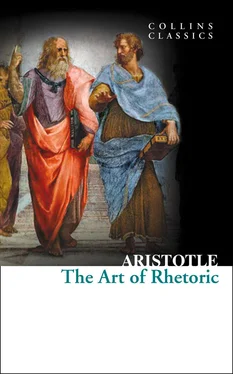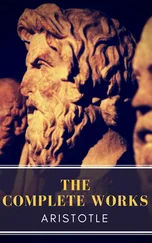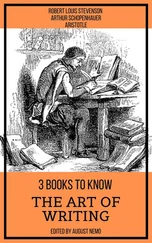Now, it is of great moment that well-drawn laws should themselves define all the points they possibly can and leave as few as may be to the decision of the judges; and this for several reasons. First, to find one man, or a few men, who are sensible persons and capable of legislating and administering justice is easier than to find a large number. Next, laws are made after long consideration, whereas decisions in the courts are given at short notice, which makes it hard for those who try the case to satisfy the claims of justice and expediency. The weightiest reason of all is that the decision of the lawgiver is not particular but prospective and general, whereas members of the assembly and the jury find it their duty to decide on definite cases brought before them. They will often have allowed themselves to be so much influenced by feelings of friendship or hatred or self-interest that they lose any clear vision of the truth and have their judgement obscured by considerations of personal pleasure or pain. In general, then, the judge should, we say, be allowed to decide as few things as possible. But questions as to whether something has happened or has not happened, will be or will not be, is or is not, must of necessity be left to the judge, since the lawgiver cannot foresee them. If this is so, it is evident that any one who lays down rules about other matters, such as what must be the contents of the ‘introduction’ or the ‘narration’ or any of the other divisions of a speech, is theorizing about non-essentials as if they belonged to the art. The only question with which these writers here deal is how to put the judge into a given frame of mind. About the orator’s proper modes of persuasion they have nothing to tell us; nothing, that is, about how to gain skill in enthymemes.
Hence it comes that, although the same systematic principles apply to political as to forensic oratory, and although the former is a nobler business, and fitter for a citizen, than that which concerns the relations of private individuals, these authors say nothing about political oratory, but try, one and all, to write treatises on the way to plead in court. The reason for this is that in political oratory there is less inducement to talk about nonessentials. Political oratory is less given to unscrupulous practices than forensic, because it treats of wider issues. In a political debate the man who is forming a judgement is making a decision about his own vital interests. There is no need, therefore, to prove anything except that the facts are what the supporter of a measure maintains they are. In forensic oratory this is not enough; to conciliate the listener is what pays here. It is other people’s affairs that are to be decided, so that the judges, intent on their own satisfaction and listening with partiality, surrender themselves to the disputants instead of judging between them. Hence in many places, as we have said already, irrelevant speaking is forbidden in the law-courts: in the public assembly those who have to form a judgement are themselves well able to guard against that.
It is clear, then, that rhetorical study, in its strict sense, is concerned with the modes of persuasion. Persuasion is clearly a sort of demonstration, since we are most fully persuaded when we consider a thing to have been demonstrated. The orator’s demonstration is an enthymeme, and this is, in general, the most effective of the modes of persuasion. The enthymeme is a sort of syllogism, and the consideration of syllogisms of all kinds, without distinction, is the business of dialectic, either of dialectic as a whole or of one of its branches. It follows plainly, therefore, that he who is best able to see how and from what elements a syllogism is produced will also be best skilled in the enthymeme, when he has further learnt what its subject-matter is and in what respects it differs from the syllogism of strict logic. The true and the approximately true are apprehended by the same faculty; it may also be noted that men have a sufficient natural instinct for what is true, and usually do arrive at the truth. Hence the man who makes a good guess at truth is likely to make a good guess at probabilities.
It has now been shown that the ordinary writers on rhetoric treat of non-essentials; it has also been shown why they have inclined more towards the forensic branch of oratory.
Rhetoric is useful (1) because things that are true and things that are just have a natural tendency to prevail over their opposites, so that if the decisions of judges are not what they ought to be, the defeat must be due to the speakers themselves, and they must be blamed accordingly. Moreover, (2) before some audiences not even the possession of the exactest knowledge will make it easy for what we say to produce conviction. For argument based on knowledge implies instruction, and there are people whom one cannot instruct. Here, then, we must use, as our modes of persuasion and argument, notions possessed by everybody, as we observed in the Topics when dealing with the way to handle a popular audience. Further, (3) we must be able to employ persuasion, just as strict reasoning can be employed, on opposite sides of a question, not in order that we may in practice employ it in both ways (for we must not make people believe what is wrong), but in order that we may see clearly what the facts are, and that, if another man argues unfairly, we on our part may be able to confute him. No other of the arts draws opposite conclusions: dialectic and rhetoric alone do this. Both these arts draw opposite conclusions impartially. Nevertheless, the underlying facts do not lend themselves equally well to the contrary views. No; things that are true and things that are better are, by their nature, practically always easier to prove and easier to believe in. Again, (4) it is absurd to hold that a man ought to be ashamed of being unable to defend himself with his limbs, but not of being unable to defend himself with speech and reason, when the use of rational speech is more distinctive of a human being than the use of his limbs. And if it be objected that one who uses such power of speech unjustly might do great harm, that is a charge which may be made in common against all good things except virtue, and above all against the things that are most useful, as strength, health, wealth, generalship. A man can confer the greatest of benefits by a right use of these, and inflict the greatest of injuries by using them wrongly.
It is clear, then, that rhetoric is not bound up with a single definite class of subjects, but is as universal as dialectic; it is clear, also, that it is useful. It is clear, further, that its function is not simply to succeed in persuading, but rather to discover the means of coming as near such success as the circumstances of each particular case allow. In this it resembles all other arts. For example, it is not the function of medicine simply to make a man quite healthy, but to put him as far as may be on the road to health; it is possible to give excellent treatment even to those who can never enjoy sound health. Furthermore, it is plain that it is the function of one and the same art to discern the real and the apparent means of persuasion, just as it is the function of dialectic to discern the real and the apparent syllogism. What makes a man a ‘sophist’ is not his faculty, but his moral purpose. In rhetoric, however, the term ‘rhetorician’ may describe either the speaker’s knowledge of the art, or his moral purpose. In dialectic it is different: a man is a ‘sophist’ because he has a certain kind of moral purpose, a ‘dialectician’ in respect, not of his moral purpose, but of his faculty.
Let us now try to give some account of the systematic principles of Rhetoric itself – of the right method and means of succeeding in the object we set before us. We must make as it were a fresh start, and before going further define what rhetoric is.
Читать дальше












